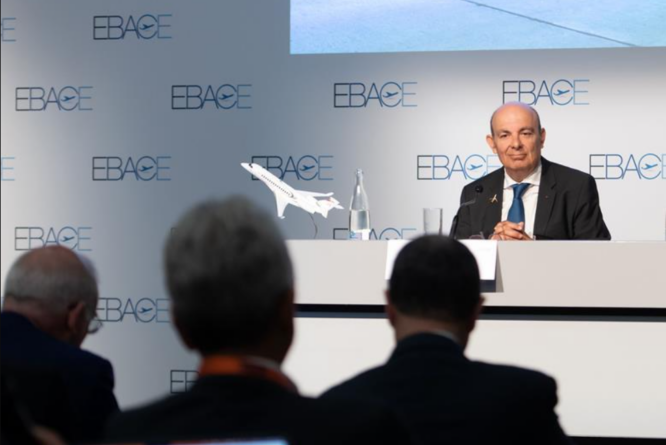
Eric Trappier, the combative CEO of Dassault Aviation, has come out striking against those who seek to stigmatize business aviation, contending that the industry must fight back.
“Recently, business jet bashing has become something of a sport in Europe,” he said at a 22 May press conference held prior to the EBACE.
“The most effective defense is to demonstrate our commitment to emission-reduction goals,” he says.
In addition, he criticizes the European Commission’s “politicized” decision to exclude business aviation from the list of green industries that “can be considered sustainable investments.”
According to him, the incorporation of business aviation would have paved the way for additional funding sources, thereby promoting further decarbonization efforts.

“I sincerely hope that the European Commission will change its mind and permit OEMs, suppliers, and other business aviation firms to contribute to the decarbonization of the economy.”
Trappier believes sustainable aviation fuel (SAF) is the industry’s greatest option “in the short and long term.”
Dassault already uses a 30% SAF mixture to power its internal aircraft, but Trappier argues that the lack of widespread adoption is “not a technical issue, but an economic one.”
“To get the right price, you must obtain the proper volume,” he explains.
While the aircraft manufacturer continues to investigate longer-term solutions to reduce petroleum consumption, such as lighter materials or more aerodynamic designs, it has also developed a software-based solution that could result in a 10% reduction in emissions.
The routing system, known as FalconWays, utilizes real-time weather data to alter flight plans en route, optimizing a jet’s trajectory. According to Trappier, ongoing flight testing have yielded promising results thus far.
“In real-world testing, we found that we could significantly reduce emissions,” he adds.
